|
Al Margolis, nicknamed "The Godfather of the cassette", is one of the legendary figures of this culture. At the head of Sound of Pig label, he published 300 references that represent one of the most incredible archive of unclassifiable 80s music: Minóy, Francisco López, Amy Denio, Roberta Eklund, Heather Perkins, Hands To, Haters, Morphogenesis, Merzbow, Solmania and an endless etcetera that constitutes a true "who is who" of the experimental scene of that time. In addition, since 1984, Al has been publishing his own music under the name "If, Bwana" (acronym for "It's funny but we are not amused"). Dozens and dozens of cassettes and CDs of dadaist electroacoustic. Currently, Al Margolis directs his great Pogus Productions label, more oriented towards contemporary classical electronic music, and incredibly, keeps the Sound of Pig catalog active. http://www.pogus.com/ Sound of Pig: http://www.pogus.com/catalogue_sop.html http://www.pogus.com/catalogue.html (This interview appeared in the 8th issue of Spanish fanzine Manchas y Ruido). 1. I’ve read that you played bass in Cleveland art-punk band The Styrenes. This is a band I discovered two years ago through Soul Jazz Punk Series. I thought you were from New York, how did you get involved in that band? I did play bass with Styrenes – and I guess if we ever play again I may still be the bassist. But I was not an original member of the group. They started around 1973 or so (not sure of exact date). I did not begin playing with them until around 1993/94 or so. And the truth of the matter is that most of the members of that scene – The Styrenes, Electric Eels, Mirrors, Pagans – all went to New York at some point(s) – so in reality I think almost all of them lived longer in New York than Cleveland where they were all from. 2. How did you get involved in the cassette culture network? I’ve read that you wanted to release stuff so you could trade cassettes instead of having to buy them! Well I came across people releasing cassettes through magazines like OP and The New York Rocker. And I started buying tapes from some of these folks. Even though buying tapes from people back then was pretty inexpensive, after a while it still started to add up. And since most cassette folks were happy to trade as well as also looking for an outlet for their music, starting a label was good way to help others and myself getting their/our music around. So yes one incentive for starting the label was to be able to trade with others. And get my music around. And put out others works (I had for a long time wanted to be a “producer” – so this was a way of actually doing it!). 3. It’s been told a lot of times: Sound of Pig was one of the most important cassette labels ever (if not the most). 300 references and dozens of great artists. I’m curious about how could you release so many items, I guess you had a regular job, too, right? Sound of Pig released 301 tapes. I did have a regular job back then – I was a shipping clerk. So not really strenuous work – and at one point managed to make that a 4 day a week job. So that helped pay for buying tapes etc. Every tape was hand dubbed in real time. I had at my job 2 or 3 dubbing decks and the same thing at home. So I could run off a bunch of tapes while working and then come home and do more. The tape decks were rarely ever not going!! And I also had a copy machine as well so as to run off covers art etc. So I did try to keep things simple and cheap where possible. Those were also the days when dubbing decks were pretty good and pretty reasonably priced. For $150 or so you could get really durable tape decks – Sony's, Teac’s, etc. They lasted and lasted. 4. Sound of Pig is a weird name for a label. Can you explain a little why did you choose it? The band I was playing in when I started SOP was called Pigs on Parade (you see a theme here) – and so when starting the tape label I was sort of thinking about the song from "The Sound of Music" – "The hills are alive with the sound of pig music…lalala" – so kind of a joke and all...I mean the label name… 5. It's really amazing that you still keep the catalog available; that was a big surprise for me last summer. Do you receive many orders? I guess you have the masters for each release digitalized, haven't you thought of uploading the catalog? On one hand I am not quite sure why I keep the catalog available. Orders come in fits and starts. Sometimes I get some and then sometimes none for very long stretches. And with tape decks being kind of hard to get my hands on, I am sometimes very happy no one orders. So orders are really variable. And actually I probably have about a third to maybe half the tapes digitized. I kind of do that if someone orders something I have not done yet. With 301 masters, that is a lot of time spent trying to do that - I mean digitizing – since it is real time, it takes time I would generally rather not dedicate to it. And since I have no plans – and in reality – not rights to upload the entire catalog – I always have looked at it as I was only putting out tapes and as the digital world was no where in sight when SOP was active, I do not think anyone ever considered this, So I generally assume that the artists have the rights to their own work to upload etc – I am ok still offering the tapes (and if someone asks me to not to sell them anymore I stop doing that). Which then means there is no great need to have digitized everything. I have other things to do unless it is necessary. 6. Sound of Pig was the label that released more Minóy material besides Minóy Cassetteworks. I consider Minóy one of the greatest electronic musicians of the 80s, his work was really powerful and visionary. How was your relationship with him? Did you meet him personally? I am probably in agreement with you here. I really did and do still like Minóy’s works very, very much. I never met him, never spoke to him. The relationship was only through the mail, and it was always fine. And I must say I was most pleased that I did get a chance to release a fair amount of his work. 7. Which was the main reason to finish SoP and start Pogus Productions? Both labels ran concurrently for a couple of years. But as that (first?) version of the cassette network seemed to be winding down – less interest, less places to send tapes to – a lot of the zines and mags had folded or stopped, there was – at least my feeling at the time, was that it was time to move on. And then my interest became more focused on Pogus. I had become interested in a lot of contemporary classical/ electronic/ electro-acoustic music and wanted to get things out of that type. So it was time to move on. 8. Pogus seems a label more oriented to contemporary almost "classical" electronic music, less subterranean stuff. Do you still have contacts with the people from the cassette network? Correct analysis about Pogus (see above). And yes I do still have contacts with cassette folks. Some I never lost contact with – as we became friends during that time. Many I did lose contact with, but have sort of re-connected through (ugh) Facebook. And some I still have not been in contact with for years. 9. How did you first get interested in electronic music? I’d like to know about your first influences and inspirations for your own music and the label. My introduction to "out" music would have started with Zappa and the Mothers. Then through the Canterbury scene (Soft Machine etc), Henry Cow. Then into Varèse, Cage, Schoenberg, Philip Glass, Throbbing Gristle, This Heat. That was just listening. Then when I started SOP I was hearing some electronics from what people were doing. But I got a serious introduction into electronics and contemporary classical when I moved to Brooklyn. Doug Walker (Alien Planetscapes) ran a salon series in his apartment every Friday. So not only did we get to play there as well as hear others – most of whom were doing electronic music (mostly synths), but Doug also had a fairly extensive record collection of that sort of stuff. So each week he would lend me all sorts of records – Stockhausen, Xenakis, Nono, and out jazz, etc. So I would thake all that home and record them and then next week take more. So I got a serious immersion in all that. Which was pretty revelatory. To Hear Stockhausen’s "Hymnen" after hearing Minóy – a straight thread between them – a whole new perspective. I guess in the early work of mine you would hear more of a TG sound I would think. Not that I was aiming for that but just some of the loops and instrumentation (bass, violin, guitars, tapes, echo trumpet) ...just was available around for instrumentation – I was trying to just make the sounds/pieces I was hearing in my head. 10. Is there a SOP release that you are especially proud of? Any place to start with the overwhelming catalogue? That really is a hard question. I am proud of the entire label. And the answer could depend almost on any day. As mentioned, Minóy. Early Jim O’Rourke. The Haters, BCO, Zan Hoffman, John Hudak. Dave Prescott, Alien Planetscapes. If I mention names, then I insult (?) others by leaving them out? So basically I dug just about everything on the label. I really love the Prescott/Minóy tape – PM – one of my personal faves. And also the first collaboration I did with Hal McGee (Dog as Master) – "An Organized Accident". 11. If, Bwana is the name under which you make your own music. I saw you play in Madrid with my friend Marta Sainz a few years ago. In that show you played clarinet over a multitrack clarinets recording, which surprised me, as I thought your music were more electronic-oriented. What kind of sounds are you using actually? That was a fun tour with Marta by the way. I think if you look back at most of my work, there is very little of it overall that is strictly electronic. The better description probably for over the years would be either loop-based or even better probably electro acoustic, as I have almost always used some kind of instrument along with any samplers or synths or electronics. And more and more I tend to only use acoustic instruments. Hardly any electronics. Part of that has been practicality – not having to worry about electronics or computers breaking down and part of it by choice – as more and more people have added electronics to their sounds or are using synths of all types, I have gone in the other direction. Maybe seeing how much noise/sound/annoyance I can cause not using any electronics, effects etc. Maybe some kind of perverse contrarian thing? Many live sets now are just clarinet, violin, and contact mics. Though in recording everything – electronics or not – are fair use. 12. With If, Bwana and your label, do you have or have you had any kind of political-social-artistic agenda? One of the things I love about the American cassette culture is the absence of shock tactics and ambiguous messages. Well there is no overt political etc agenda. But just by doing something – making music/sounds/art whatever – that rejects the mainstream, commercial "culture" – by rejecting/subverting/ avoiding the "American Way" is I think the statement – the act of rebellion. With everything being deemed important by its commercial success. As America basically has no artistic culture, interest in culture/art – not having really that European (for want of a better term) tradition, artistic culture and support – I mean basically the USA is still a "young" country – I think any agenda would be different than other cultures. 13. Thanks a lot for your time, Al!
10 Comments
Leslie Singer
2/11/2019 14:48:37
Much thanks to Al, Atomizador and Hal for posting this fantastic interview. Al, I never knew that you played bass in the Styrenes on top of all your other awesome accomplishments-- Very impressed! And the photo with you and Hal is so great-- it should be on a t-shirt!!
Reply
2/12/2019 01:06:08
So glad you enjoyed it, dear Leslie! Al surely is a treasure, his work and determination so inspiring...I was not there back in the days, so I'm really curious about those times.
Reply
Rafael González
2/11/2019 15:03:09
Great interview! Thank you very much for this fantastic journalistic work
Reply
Jerry Kranitz
2/11/2019 17:40:57
Great interview! Of particular interest, because it was new to me, was the influences question. I would l LOVE to have Doug’s music salons!
Reply
Frank
2/11/2019 19:02:53
Always great, to read these interviews and how it was back in the day.
Reply
2/12/2019 01:07:31
Thanks for the feedback. Stay tuned for more interviews to great cassette culture artists!
Reply
Chris Phinney
2/12/2019 06:12:14
Always good to read a interview with Al, great job you did with this!
Reply
Phillip Klampe
2/25/2019 23:01:04
Thanks for the informative interview! Back when I first became aware of Sound Of Pig, I only recognized a few of the names in the catalog. It became apparent though that I could randomly pick any title to order and it would be great. Discovered some great new music via SOP.
Reply
3/1/2019 10:49:43
Great read & nice getting to know Al better from the interview.
Reply
4/21/2020 04:43:53
Hi Al,
Reply
Leave a Reply. |
AtomizadorAfeite Al Perro Archives |
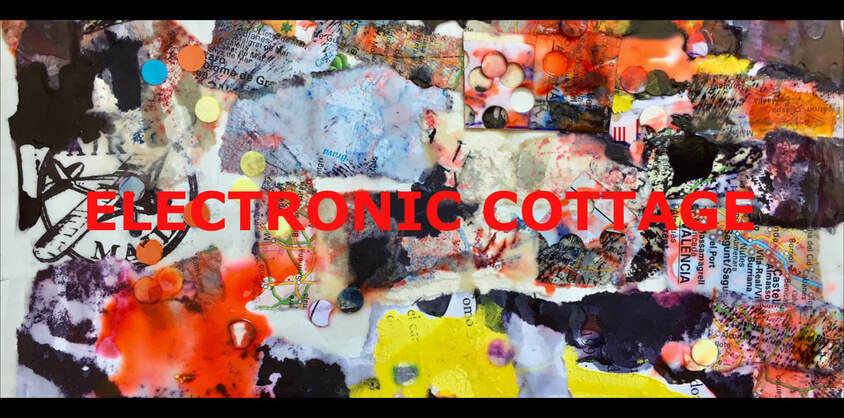
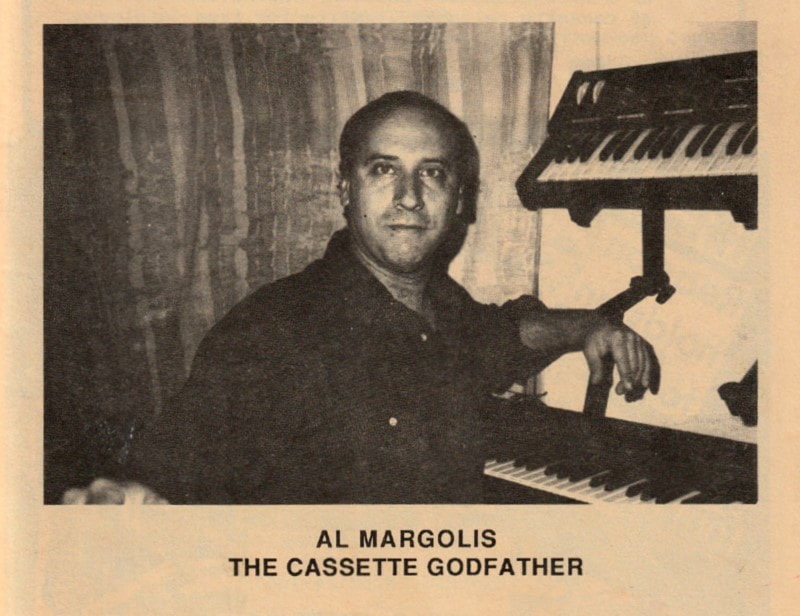
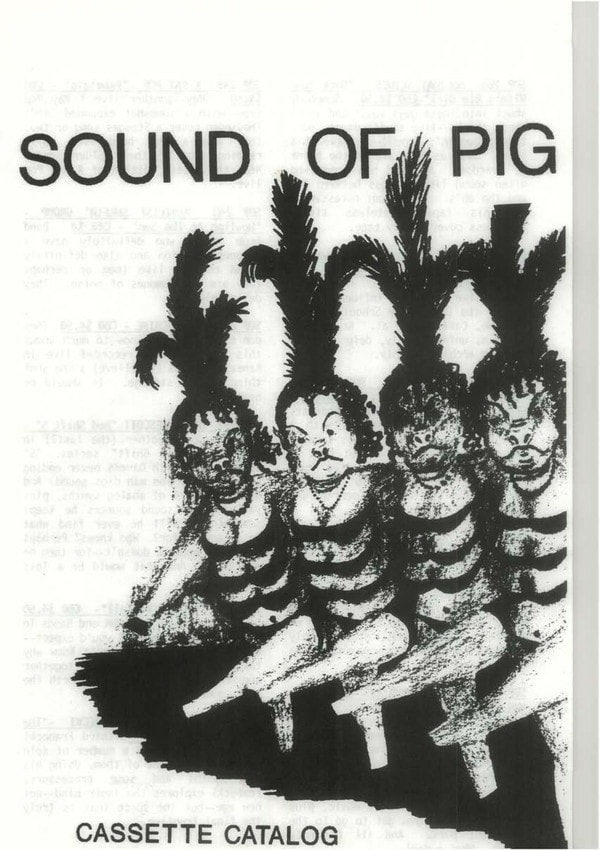
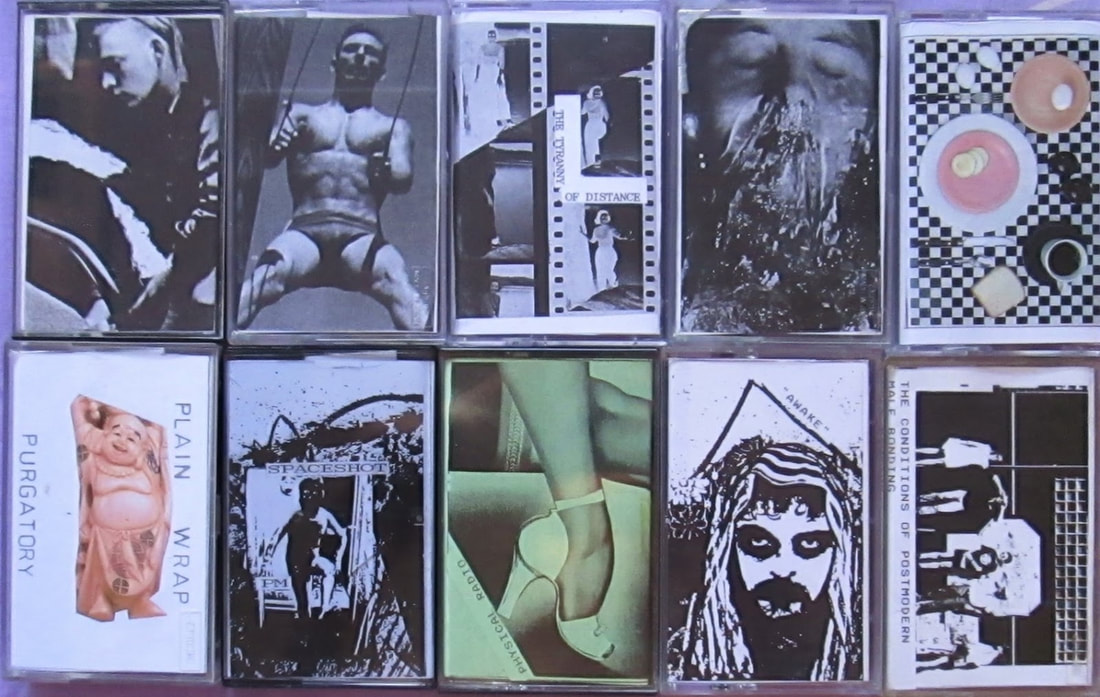
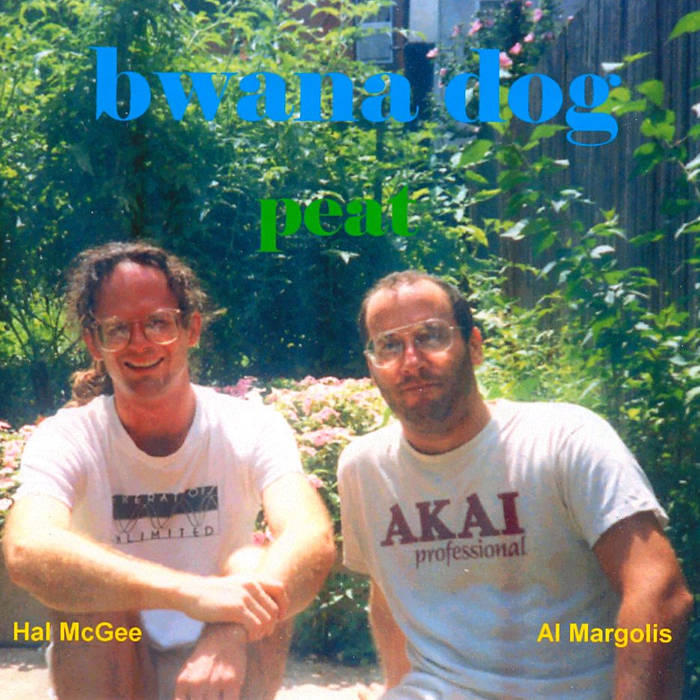
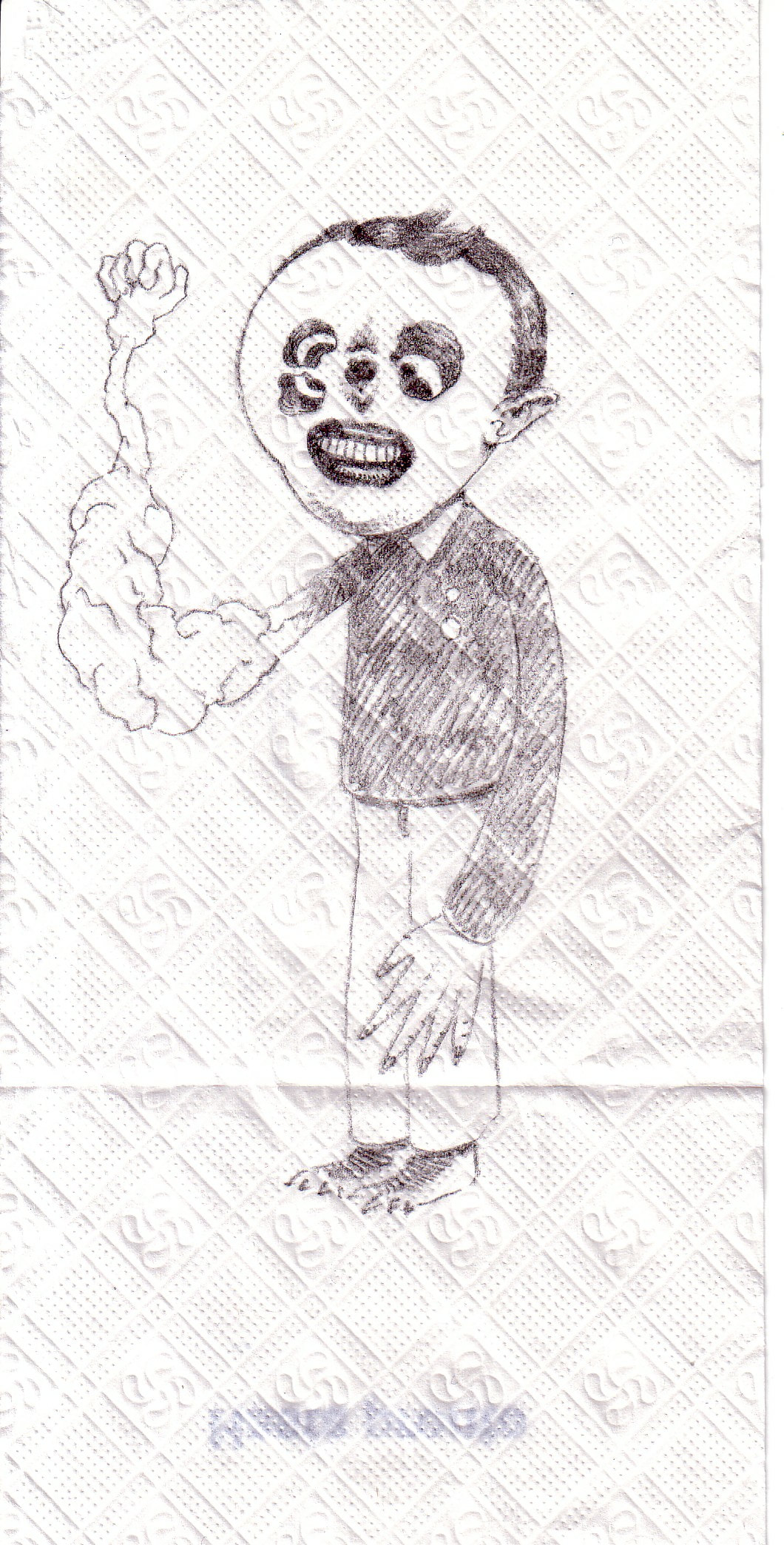
 RSS Feed
RSS Feed